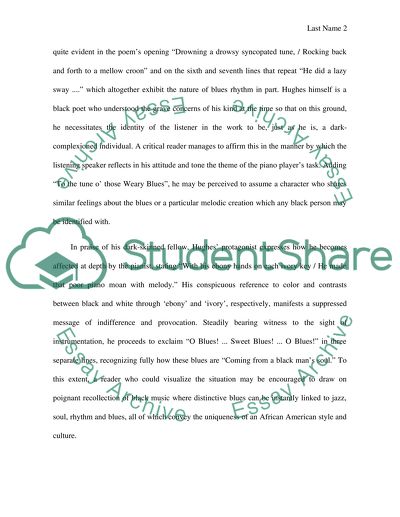Cite this document
(“My Weary Blues by Langston Hughes Essay Example | Topics and Well Written Essays - 1000 words”, n.d.)
Retrieved from https://studentshare.org/literature/1461494-my-favourite-poem
Retrieved from https://studentshare.org/literature/1461494-my-favourite-poem
(My Weary Blues by Langston Hughes Essay Example | Topics and Well Written Essays - 1000 Words)
https://studentshare.org/literature/1461494-my-favourite-poem.
https://studentshare.org/literature/1461494-my-favourite-poem.
“My Weary Blues by Langston Hughes Essay Example | Topics and Well Written Essays - 1000 Words”, n.d. https://studentshare.org/literature/1461494-my-favourite-poem.


